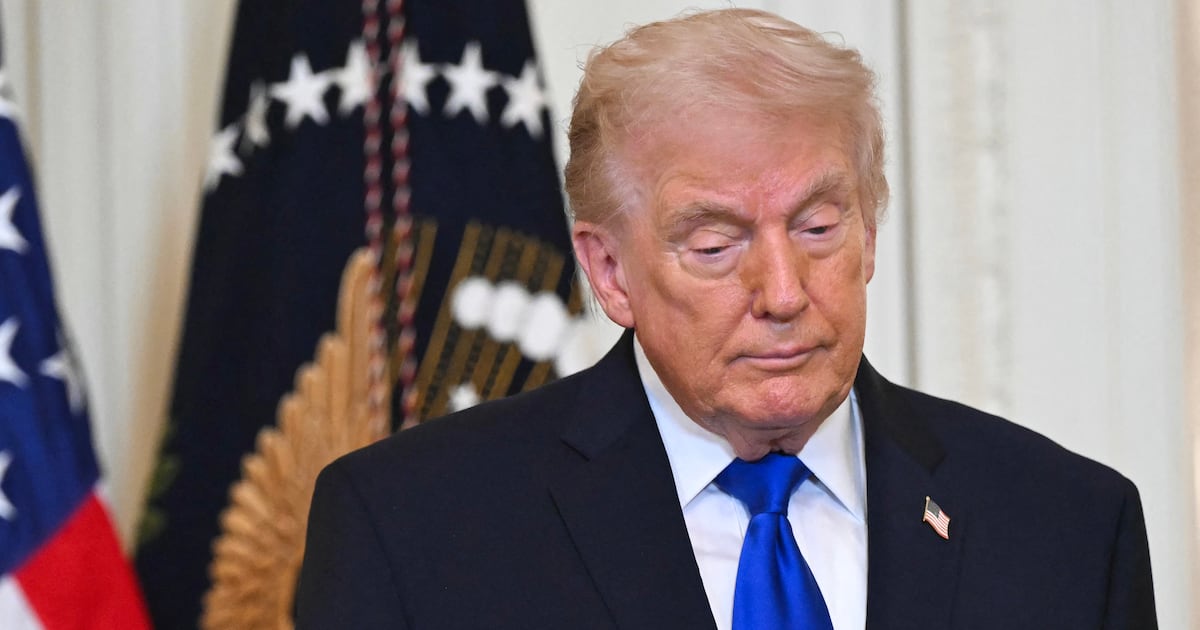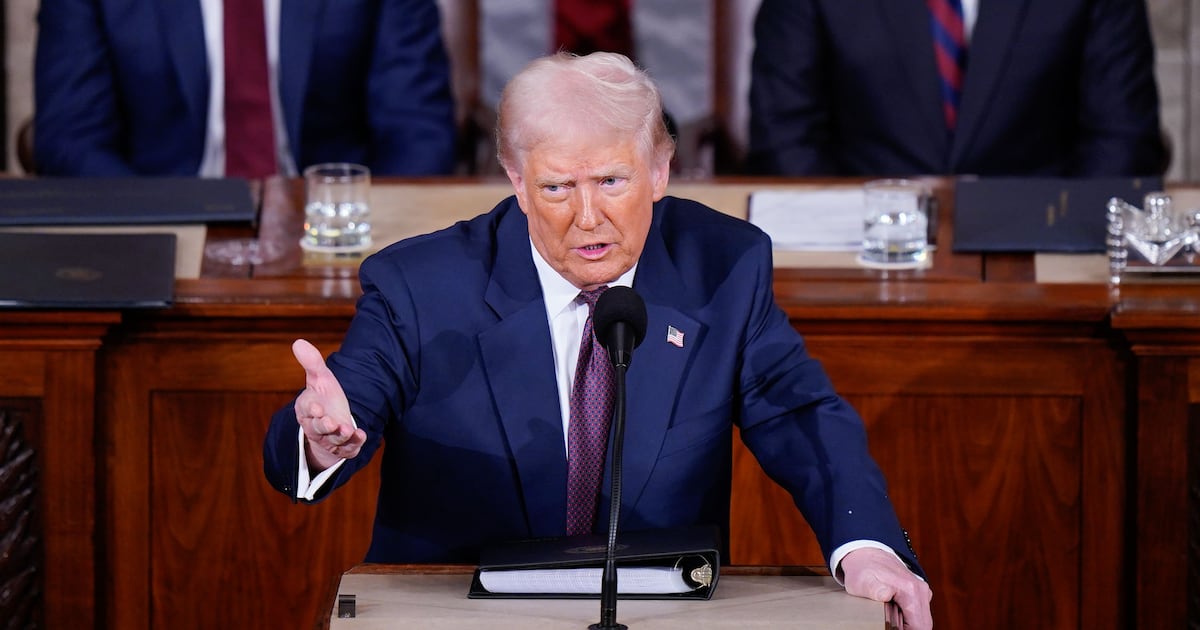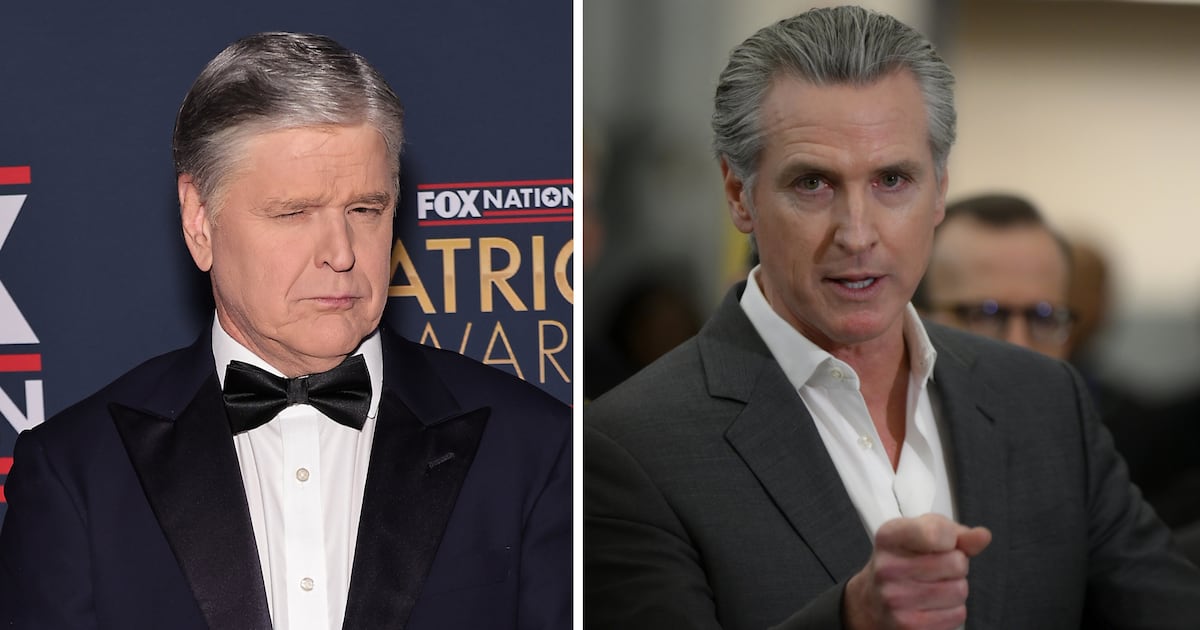There's more than yellow stripes and dead armadillos in the middle of the road.*
For most of my life, I've considered myself a political centrist. Because our system allows only two party choices, I've chosen to be a Republican for the last 15 years. More policy positions on the conservative side appeal to me. But according to the rules of our political and media culture, if you're not on the right, you're on the left. And if you're not on either, you're a squish—a Republican in Name Only, or RINO. Those of us who don't choose the extremes are told we don't stand for anything.
But being a centrist is not about choosing sides, and it's not about standing for nothing. It's about choosing what we believe are good ideas from both sides of the political spectrum. A broad base of support in the middle brings balance to the see-saw of political power. When the fulcrum shifts right, conservatism rises. When it shifts left, liberalism rides high. But the broader the base at the midpoint, the more stable the ride—no matter how many pile on at the extremes. And don't call us moderate, because we believe as passionately in our core beliefs as those on either side of us.
More Americans are rejecting the establishment's labels. Fewer voters identify themselves as Democrats, the lowest in nearly eight years. And the number of Republicans among adults is slipping, too. But the real story is in the middle: A third of all adults are not affiliated with either party. And the middle is growing.
They may drink tea—or coffee, or something else entirely—but one thing is clear: Those in the middle aren't drinking the Kool-Aid. They don't agree on every policy, but they are willing to debate on principles. And consider principled compromise. They recognize hard decisions are ahead. And neither party is stepping up to make the tough decisions.
Looking to both sides for the best ideas, Middle America is demanding fiscal responsibility from a smaller, smarter government—one that does not stand in the way of people creating their own opportunities, one that ensures accountability while preserving personal freedoms, and one that is ruled by a stronger voter's voice.

These principles align with the long poles of the Republican tent. The keepers at the GOP gate need to open the flaps wide. (Democrats embrace their centrists like Rep. Heath Shuler of North Carolina; they don't call him a DINO.) The Republican Party needs all the RINOs and squishes like me it can attract if it wants to regain and hold majority status. Or else RINOs will find somewhere else to go.
We may not agree on much, but almost all Americans believe we need significant changes in Washington to restore trust in our government and regain our competitive footing.
Sen. Chuck Schumer is wrong. We do care about “all those little, tiny, yes, porky amendments.”
Herewith, a modest manifesto from the middle: 12 Steps to Recovery
• Meghan McCain: Stop the Gay-Bashing, GOP• The GOP’s Undercover Bankrollers 1. Flood the moat, burn the bridges. Get lobbyists, corporations, unions, and bundlers out of buying federal elections. Give the power back to the voters. In the last two weeks before adjournment, House candidates attended more than 400 fundraisers in the D.C. area. The top 10 heavy hitters, a list that includes trial lawyers and more unions than corporations, have contributed more than $355 million to the two parties from 1989 through mid-September. Forty-eight Super PACs with unlimited giving potential, from the right and the left, have registered with the FEC in the last few months. No wonder 70 percent of voters believe most members of Congress are willing to sell their vote for a campaign contribution. We can start reforming the system by passing the Fair Elections Now Act, and we can radically disrupt the way campaigns are financed through state constitutional conventions. Congress won't reform itself, but the framers anticipated such a problem, giving us Article V to go around Congress.
2. Butcher the pork, freeze the fat. Sen. Chuck Schumer (D-NY) is wrong. We do care about "all those little, tiny, yes, porky amendments." With a deficit of $1.4 trillion, does it make any sense to be spending taxpayer dollars on researching exotic ants in the Indian Ocean? If expanding the government to such gross levels was good for the health of the nation, Europe would be leading the world, not suffering from economic sclerosis. When the government tries to borrow and spend its way to economic growth, the private sector—the job creators—cuts back its investments in anticipation of tax increases. An economy that's hostile to business will go the way of Greece. It's time to focus government spending on only mission-critical services, and not just freeze spending but reduce spending to a fixed percent of GDP. All spending, discretionary and non-discretionary, needs to be on the table. No sacred cows. Not even NASA. (Call me an interplanetary isolationist, but I think we should take care of lives here on Earth before we search for life on other planets.) Follow the model of Secretary of Defense Bob Gates: Reduce overhead costs by eliminating excess and duplication without risking critical force structure. We should permanently ban earmarks. Break up spending bills into individual requests. And restrict emergency spending for real emergencies only.
3. Call an end to the privileged class. Middle America believes in fair play, an equal opportunity to succeed or to fail. But as seen in the GM bailout, unions are protected from failure with taxpayer dollars. Unions have destroyed the manufacturing sector, forcing jobs overseas by driving labor costs above the price consumers here will pay. Though membership has drastically declined, there are now more union members in the public sector than in the private sector. Eighty-six percent of state- and local-government workers have employer-provided health insurance versus 45 percent of private-sector workers. And unfunded public pensions already threaten to bankrupt California and New York. It's time to get unions out of federal, state, county and municipal government services. And it's time to privatize non-essential government services. According to the Office of Management and Budget, one-third of federal employees have jobs that could be performed by a private contractor. There are probably more. Let's start by privatizing the ever-in-debt postal service, which pays 1,125 employees to sit idly each day at a cost of $50 million annually.
4. Flatten the world (of the IRS). When unabashed capitalist Steve Forbes and former Gov. "Moonbeam" Jerry Brown are comparing notes on a flat tax, it's time to pay attention. Lower tax rates spur economic growth, which generates more government revenue. Both Presidents Kennedy and Reagan recognized this. And under President George W. Bush, get ready for this, the rich actually paid more in taxes—because tax rates were lowered. In 1980, when the top tax rate was 70 percent, the top one percent of earners paid 19 percent of all income taxes. In 2008, with a top tax rate at 35 percent, half the rate of 1980, the top one percent paid 38 percent of all income taxes, double the share of 1980. Today almost half in the country pay no federal income tax; many actually "make a profit" through tax rebates. Taking more taxes from job creators, as will happen if the Bush tax cuts are allowed to expire, creates no sustainable, self-funding jobs. A simplified, lowered, and flat tax will increase revenues and create an all-in approach that would force folks to think more clearly about benefits they will have to help fund. No deductions, credits, or loopholes. Only one exemption setting a taxable income threshold based on family size. A flat tax treats people fairly: Those who make 1,000 times more than the average Joe pay 1,000 times more in taxes. While I'll leave it for economists to pick the right rate for consumers and corporations, if 10 percent is good enough for God, 15 percent ought to be good enough for government work.
5. Stop the cannibalization. Spending on Medicare, Medicaid, and Social Security will consume all tax revenues by 2052 at current rates. We are eating our young, spending their earning potential before they are even born. It's time to save the safety nets—for them. On this issue, the Democrats are the party of no (no grasp of reality). But Rep. Paul Ryan (R-WI) has the right idea: Give the people the same choices Congress enjoys. Protect folks over 55 today from any changes to the commitments made. Give those under 55, as they become eligible, vouchers to purchase private health insurance, just as Congress does. Sicker and poorer enrollees would get larger vouchers. Vouchers put the consumer in charge, forcing providers to compete against each other to deliver care more efficiently rather than lobbying for reimbursement rate increases under Medicare's current single-payer plan. Let workers invest a third of their payroll taxes in their own savings account, guaranteed and managed by Social Security. Raise the retirement age, indexed to average life expectancy. And decrease benefits by 10 percent for everyone under 50.
6. Neuter the czars; let the sun shine in. Signing statements, executive orders, and the appointment of czars were once considered a serious threat to congressional power. Obama's pledges of transparency and accountability have expired. Unelected, unchecked, and unaccountable staffers now have the power to regulate our physical and financial health. The most frightening words in the health-care act are "as the Secretary may determine." Whether with nudges to dictate " lifestyle behavior modification," or with not-so-veiled threats of IRS action against private industry, or with guilty-before-proven-innocent charges against an organization of small businesses and private individuals, the ends do not justify the jackboot means. It's time regulate the regulators and let the sun shine in on the executive and legislative branches. Fannie, Freddie and the Fed must come out from behind closed doors. Congress must reform and rebalance the power of the people. And Congress should have a say in any regulation that has a fiscal impact.
7. Stop teaching our children (the wrong lessons). That we fail our children is our greatest shame. Newark, New Jersey, spends more than twice the national average per pupil but graduates only half its students. Will a $100 million gift from Facebook founder Mark Zuckerberg improve results? Underfunding is not the reason for underperformance. Nationally, charter schools and voucher programs produce better results with less money. And though real federal spending per public school pupil has more than tripled since the 1960s, achievement scores remain flat and graduation rates are the same as in 1970. Radical education reform is needed. It's time to get the unions out of the classroom. The American Federation of Teachers spent $1 million to defeat D.C. Mayor Adrian Fenty for his support of education reformer and school chancellor Michelle Rhee, who resigned Weds. The right ideas are already out there. Hold schools accountable to national standards, but allow problem solvers at the local level to design education solutions that reward performance for students, teachers, parents, and schools.
8. Copy Clinton's conservative moves. To open up new markets and create American jobs, we need to make global bilateral free trade agreements a priority as they were under the Clinton administration. Free trade grows jobs here. President Obama agrees: "Export growth leads to job growth...jobs that pay 15 percent more than average. So at a time when jobs are in short supply, building exports is an imperative." It's the trade deficit, importing more than we export, not free trade itself that kills jobs. The U.S. has a manufactured goods trade surplus with its free trade partners but a trade deficit with countries that have not entered into an agreement. Without agreements, 60 percent of available markets are closed to us. Free trade grows jobs here, and helps improve lives in developing nations—a cause that should be shared by all. But to unleash the powerful potential of free trade, we also need to slash the deficit, which diverts billions in foreign spending to the purchase of American debt rather than American goods. And while we're at it, let's kill farm subsidies.
9. Go nuclear. The ultimate green strategy, good for the environment, good for the economy and therefore doable, is a natural-gas-to-nuclear-power plan proposed by contrarian Robert Bryce. Wind and solar power are land-intensive, a green sin, but not energy-dense, and affordable only when heavily subsidized. And wind power must be supplemented with hydrocarbons for reliability. Texas leads the nation and is sixth globally in wind production, yet only 8.7 percent of installed capacity is dependable during peak demand. And it provides only 1.2 percent of the state's total energy need. In Denmark, the poster child for wind power, neither carbon dioxide emissions nor hydrocarbon consumption have been reduced. Natural gas resources in the U.S. are equivalent to three times the known oil reserves of Iraq. Natural gas is the near-term solution for cleaner fuel and the bridge to the fuel of the future—nuclear, the most carbon-neutral, power-dense, relatively affordable and available energy source. As Bryce says, "If you are anti-carbon dioxide and anti-nuclear, you are pro-blackout."
10. Get right. Repealing the "Don't Ask, Don't Tell" policy in the U.S. military and legalizing same-sex marriage are issues of equality for all. Sixty percent of Americans favor allowing gays and lesbians to serve openly in the military. Gay people serve their countries openly in the British, Canadian, and Israeli military. Don't Ask, Don't Tell is discriminatory, and it limits our ability to recruit and retain the greatest numbers of the best and brightest, especially critical while we are still fighting in Iraq and Afghanistan. Secretary of Defense Robert Gates and Admiral Mike Mullen, chairman of the Joint Chiefs of Staff, both back this needed reform. And for the first time since Pew started tracking opinions on same-sex marriage 15 years ago, fewer than half of those polled now say they oppose legalizing the institution. Republicans constantly claim to be the party that defends the Constitution. In my opinion, we have no legitimate right to that claim until we get right on gay rights. It's way past time for the GOP to come out in support of equality for all.
11. Open the borders. Any act that proposes 16,000 additional IRS agents can't be good. But President Obama is right: "Consumers do better when there is choice and competition." Unfortunately, the misnamed Patient Protection and Affordable Care Act does neither. Seventy-nine percent of Republican voters, 56 percent of voters not affiliated with either party, and a majority of voters in the battleground congressional districts still favor repeal. As an alternate strategy to lower costs, it's time to open the borders to allow the purchase of private health insurance across state lines, and to allow consumers and businesses to associate for better pool rates. Just six months after the bill was signed into law, consumers face increasing premiums, fewer choices when it comes to health-care insurers and providers. Squeezed by Medicare and Medicaid reimbursement payments below cost and mounting liability insurance costs, doctors may soon be an endangered species. There's a reason doctors have flocked to Texas since 2002: tort reform. Tort reforms are needed to protect patients' access to health care providers.
12. Recognize reality. It's time to fix illegal immigration. Voters in Arizona and Texas are rightfully frustrated by the federal government's disinterest in protecting our sovereignty. Though unemployment numbers are high, low-skilled immigrants actually expand the size of the overall economy. Punishing those who work hard, who do not hurt others, and who seek a path out of poverty for their families is not the answer. The fixes need to begin now, and begin in parallel. Sen. Lindsey Graham (R-SC) has the right plan. Secure the border; ceding a no-go zone to foreign drug lords on American territory is not acceptable. Deport illegal immigrants with felony convictions. For the 11 million already in this country, provide a tough but fair path forward which would include paying fines and back taxes, passing background checks, proving English proficiency and going to the back of the line to work toward lawful permanent residence. We need to expand and simplify the farm-worker program to address seasonal work needs. Issue all legal U.S. workers, including citizens and immigrants, a biometric ID card. And strengthen the penalties and enforcements for employers. At the same time, we need to expand the number of visas issued for high-skilled workers in science and technology, the next Einstein may be waiting.
It's not a brand that brings the middle together. It's a shared belief: The promise of America still exists. Though the system is corrupted, and government now rules as the master, not the servant, the ideal of liberty balanced by responsibility lives on—right in the middle.
* Jim Hightower, former Texas agriculture commissioner: "The only thing in the middle of the road is yellow stripes and dead armadillos."
As vice chairman of Public Strategies and president of Maverick Media, Mark McKinnon has helped meet strategic challenges for candidates, corporations and causes, including George W. Bush, John McCain, Governor Ann Richards, Charlie Wilson, Lance Armstrong, and Bono






